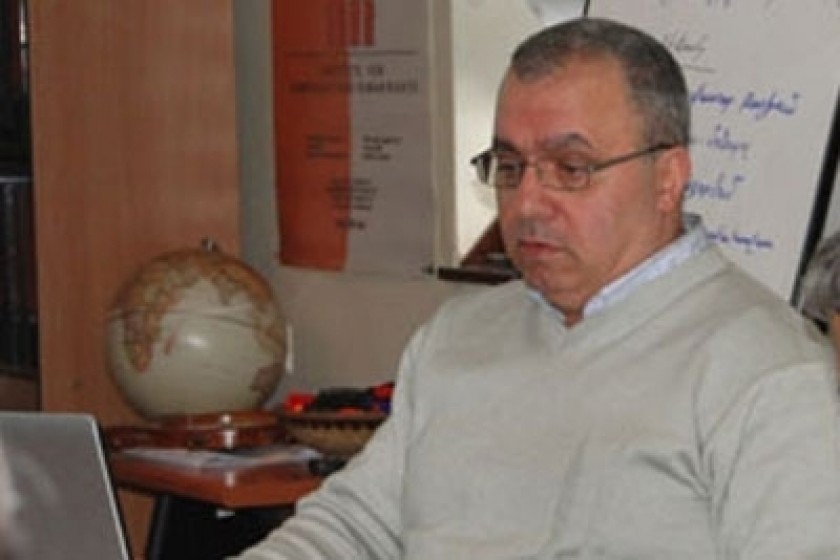
Hrant Bagratyan: “Armenia’s economic performance has fallen behind Azerbaijan’s and Georgia’s.”
The Former Prime Minister Predicts a Change of Power in 2008.
Former Prime Minister of Armenia Hrant Bagratyan (1993-1996) told the Friday Journalists' Association on December 8 that Armenia's economic performance has fallen behind that of neighbors Azerbaijan and Georgia and referred them to the website of the Central Bank of Armenia.
“Of course it's very good that the country is developing. But go and visit the Central Bank website, which contains a comparative analysis of the Armenian, Azerbaijani and Georgian economies over the last ten years. According to the site, Armenia was in first place for all indicators in 1995. Today, the average salary in Azerbaijan is US $78 and in Armenia about US $57. Georgia has left us behind, too. We have started to fall behind in the region,” Bagratyan said.
The former prime minister noted that at present Armenia has essentially no economic relations with its close neighbors. “This is a situation that occurs virtually nowhere else in the world. We have to realize that this issue should be settled somehow. We have no economic relations with our close neighbors other than weak relations with Iran and Georgia. We have relations with the neighbors of our neighbors.”
The monopolization of our economy becomes even more remarkable considering that the borders of our country are actually locked shut. Currently, according to Bagratyan, events in Armenia are aimed at the re-distribution of existing political, economic, and cultural influence rather than at development. “The political field isn't large enough anymore to satisfy both those in power and the opposition; it's large enough only to satisfy the struggle among those in power,” he said.
Bagratyan made another equally important point. “We must understand that the problem is not only one of economic policy, the type of leadership, or the individual. It's impossible to have a serious processing industry without thinking about cooperation with our neighbors. We must realize this. We know that the price of such cooperation is dependent upon the Karabakh issue. The economic development that is currently being represented refers only to the food industry, and its maximum limit at best is providing food for two or three million people. There won't be any development after that. We one or two million Armenians produce sausage and cheese at our small sausage and cheese plants and distribute them among ourselves.”
About 45 families control over 50% of Armenia's gross domestic product, according to the ex-prime minister's calculations.
“Our political and geo-political system has collided with its limits, its development limits,” Bagratyan said. He imagines that the contest in the 2007 parliamentary elections will be between forces within the current leadership, and that there will be a change of power in the presidential elections of 2008.
The former prime minister criticizes the current leaders for their foreign policy in particular and considers some of the steps they have taken adventurism. He believes that the government has taken the wrong approach to both Azerbaijan and Turkey.
“We should assist rather than impede Turkish efforts to join the European Union. We shouldn't pour oil on the fire. Why do we say to Turkey ‘Don't go West'? What, go East, to us? Why do we aggravate already difficult relations? We don't have any Turkish or Western Armenian issue, these are adventures. We have only one issue – that's Karabakh,” said Bagratyan.
In Bagratyan's view it was necessary to repopulate the liberated territories to settle relations with Baku quickly. Then Ilham Aliev would have been forced to find a solution. “Now we are like a person who has bought an apartment but neither lives there nor rents it out. And the other side says that it needs the apartment. The Hungarians and the French listen and say that they [Azerbaijan] are right.”
The ex-prime ministered recalled that 10,000 people had been moved to Lachin and a bank branch and small industrial plants had opened there in one year while he was prime minister. Today, however, the population of Lachin is shrinking.
 Videos
Videos Photos
Photos
Write a comment